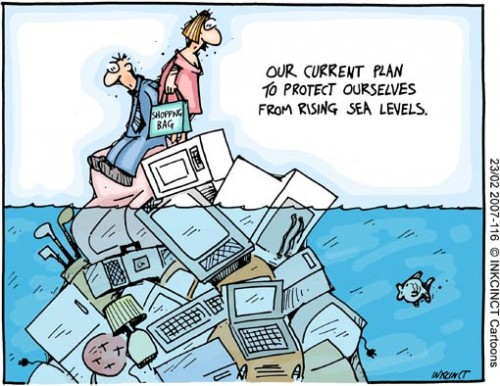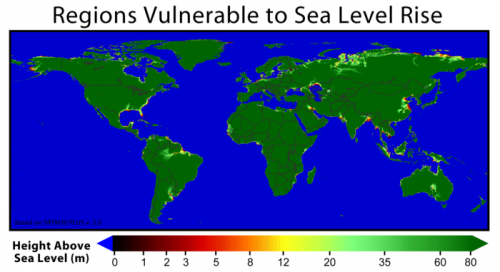
If the average global temperature rises by two degrees Celsius (3.6 degrees Fahrenheit ), should we be worried? Professor Andrew Guzman — author of the book Overheated and guest speaker at the Yale Law School’s panel on environmental policy in February — seems to think so. He explained why “climate change is perhaps the greatest international challenge of this century and beyond,” yet “people have not come to accept how serious it is.”

Many consider climate change in terms of its impact on the environment. Few, however, talk about the human costs of rising sea levels and melting glaciers. In his talk, Professor Guzman discussed how escalating temperatures have already caused sea levels to rise in several parts of the world, including the islands of the Maldives and coastal food-producing regions in densely populated Bangladesh. As the territory reclaimed by the rising sea becomes uninhabitable, thousands of people may be forced to leave their homes, becoming “climate change refugees.” These refugees will face food insecurity and exposure to the emergence of diseases resulting from sanitation problems. Likewise, these unprecedented mass displacements will contribute to urban overpopulation and will exacerbate the challenges faced by public policy makers.

Furthermore, decreased land supply means the climate change migrants will experience settlement insecurity and competition for land. The latter effect is particularly risky for human safety and social stability, as has been witnessed during the prolonged droughts in the African Sahel which triggered mass violence in Darfur beginning in 2003. Given the fact that many geographically low-lying nations have a history of socio-political conflict, land competition and water issues may heighten existing tensions. At a time when countries particularly vulnerable to rising sea levels, such as India, have access to nuclear weapons, the impact on world peace and the political “costs are difficult to conceive but […] are real,” noted Professor Guzman.

In addition to challenging food and land security, rising global temperatures pose risks to water security. Residents of mountainous regions are particularly vulnerable to the decreased availability of potable water. For example, people living in the Andes and in the Himalayas have already experienced severe clean-water shortages as a result of melting glaciers. Moreover, “the Pakistan-India conflict will be made worse by the melting of Himalayan glaciers and the resulting reduction in water flow in the Indus River during dry periods.” Although the exact numbers of those who will be affected by water crises is difficult to pin down, optimistic estimates indicate “billions.” All hypothetical social catastrophes assume an increase in global temperatures by a mere 3.6 degrees Fahrenheit, a conservative estimate according to the environmentalist community.

By taking climate change out of the realm of scientific abstraction, Professor Guzman considered the full social and economic ramifications of both observed and predicted rises in global temperature. During his talk, Guzman emphasized that research on the human costs of rising global temperatures should become a priority for public policymakers and for humanity as a whole before “we arrive at a point of no return.” This is certainly a better option than doing nothing.
